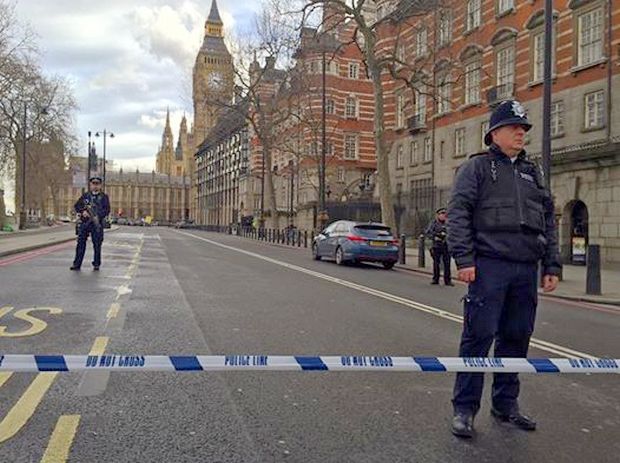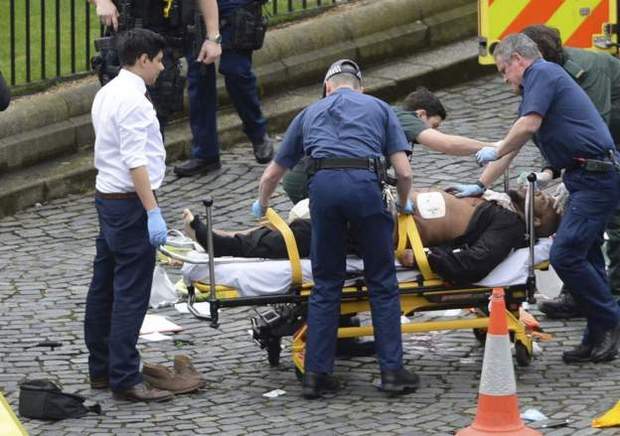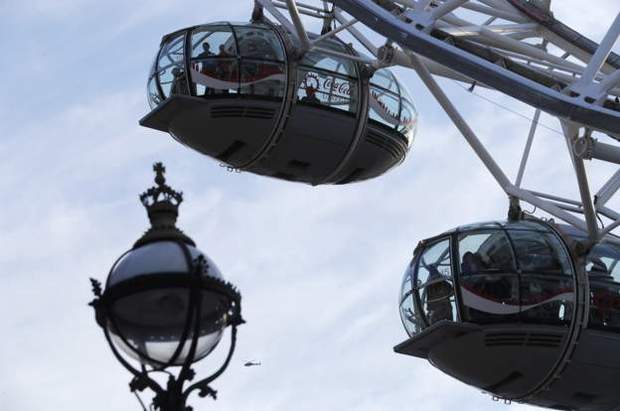BBC journalist Olga Ivshina: ''Everybody understood sooner or later a terrorist attack in London would be inevitable''
About the attack in London and why it caused a bigger panic in Russia than in the very Kingdom
A car was driven into a crowd on Westminster Bridge in London on 22 March. The driver reached the Houses of Parliament where he was stopped by the police. Then he stabbed the police officer. The incident was immediately admitted as terrorist attack, three people were victims, 40 people were injured, the terrorist was shot dead by another police officer. Olga Ivshina – former journalist of Tatarstan State Television and Radio Broadcasting Company and today's worker of British BBC – told Realnoe Vremya how London overcame the terrorist attack, how journalists worked and the very English's restrained reaction to the attack.
Inevitability of the terrorist attack and icy calmness of the English
It seems that local people were not surprised at this attack. Did they get used to them?
Not exactly. The thing is that the London special services warned a long time ago that such an attack was very likely. Great Britain has its own terrorist threat levels. According to it, the level of the terrorist attack in London has being measured as extremely high for several years. It is a penultimate level, the next level means that attack is inevitable. Special services reported from time to time that a possible attack was prevented. But everybody understood sooner or later a terrorist attack in London would be inevitable. Such scenarios were rehearsed near the House of Parliament. As far as I am concerned, training for specials services – what to do in case of attacks – took place many times.
How were people warned about it? By announcements or newspapers?
No, there are not any messages. The media makes some statements. It is said the level is still high in interviews or comments of police. But there is not any training for ordinary people. Everything is fine, nobody adds pressure to the situation. But in the Underground, there are announcements for people to be cautious, to speak to a worker if they notice unattended things.

There was not any panic in the city among the citizens. Traffic in the city centre was not affected. The area in front of the Parliament and the bridge was cordoned, the rest was open
Russian TV channels panicked more
Wasn't anybody shocked? It is clear that journalists have a special perception of tragic events. But what about ordinary people?
Personally, I was not shocked. I talked to the witnesses right after the attack. I was there in 45 minutes. The people who saw it were shocked, of course. In general, people took it well. Everybody said it was London, they couldn't be frightened, they would continue living calmly, they would be tolerant towards refugees, representatives of other ethnicities, religions, no xenophobia. People who were working in a neighbouring building were calm at court and told they did know it could happen, they were warned. This is why there was no panic. People followed the instructions of the police where to go or not to go, what to do. I saw how people were freed from the cordon, they were very calm. It is true – there was no hysteria, panic. I saw the coverage of the event on Russian channels out of the corner of my eye. It seemed to me they exaggerated a bit.
Yes, much time on the local TV was dedicated to this topic.
No, of course, here it also was the major event, and everybody was on air, me too. But there was not any panic in the city among the citizens. Traffic in the city centre was not affected. The area in front of the Parliament and the bridge was cordoned, the rest was open. The city did not get into panic. Moreover, only one underground station that looks out on the Parliament was closed. Other close stations were open, I went by underground from the BBC office without problems. If I were a tourist, it would not seem to me there had been an attack near. There was no panic, nothing.
Polite police officers and easy-going Scotland Yard
I can't help but ask what journalists said about the attack on the Parliament?
My editor asked me whether I did not mind me going. I said: ''Yes, sure''. As soon as information appeared, it became clear it was necessary to go – it is a usual action plan. We consulted how dangerous it was and decided the situation was acceptable and went there. The police helped a lot. There were cordoned areas: a sterile area that only special services entered and the second one, which is wider, is that journalists were allowed to enter. The cordon was quite close to the scene. The police officers explained in a very polite way, they also were very calm. Scotland Yard representatives constantly went out with comments. The police worked great. I liked how they worked in the place and talked to journalists – accurately and calmly.
You had worked in similar events in Kazan – the mufti's car bomb attack, Bulgaria ship's sinking, air crash. Can you compare with the things happening here?
It is very difficult to compare. Accuracy, team work, politeness of police officers are what make the English different. In Russia, panic reigns in the first hours at times. Here everything is fine. Politeness is what wins me over. I liked how Scotland Yard worked – it made statements quickly and quite often. In this aspect, it resembles the air crash in Kazan, there also were frequent comments. When Bulgaria sank, Sokolov (Editor's Note: Minister of Transport of Russia Maksim Sokolov) also was on air but not on the first day, later. The scenarios are similar, but in London, everything is far quicker. They react faster, launch this accurately working system.

In London, everything is far quicker. They react faster, launch this accurately working system
Are not tourists afraid of going for a walk in London?
As soon as the investigation ended, the cordon was lifted, tourists walk there, the Parliament works, everything is fine. The only thing is that soon after the attack, the London Eye was blocked. People sat there for several hours for safety reasons. As soon as everything calmed down, they were liberated. London had attacks in the past. In 2005 and last year there was an attempt to attack the Parliament. The authorities drew a big conclusion from the attack in the underground in 2005: they tightened safety measures – there are not any litter bins, plastic bags are put instead to see what is thrown inside. Concrete constructions appeared near big important buildings like government or stadiums. The word ''Arsenal'' is written near the stadium, and people take photos near it and don't think that actually it is a protection element, so that a truck or car won't be able to plough into a crowd or come close to the stadium.
''I don't know why but this attack hasn't had such effect like previous ones did''
Other Russians living in London shared their impressions of the events in London with Realnoe Vremya. For instance, director of change.org in Russia Dmitry Savelov was in London when the attack took place. He did not witness the event, but the reaction of citizens to the terrorist attack made a very big impression on him and it seems that not only on him but also very citizens who were surprised at each other's reaction.
''If you know, when the attack occurred, many people jumped up and began to help the wounded policeman. These heroic actions of people are the hottest topic for discussion. London has been surprised and rallied around such manifestations of humanity. In general, the mood here is quite strange — such a tragedy, and that is understandable, but the union and the human side is like never before. The main thing is that London has become stronger and more united than before,'' said Dmitry Savelov to Realnoe Vremya.
Former citizen of Kazan and resident of London today Alina Blackwood admits the terrorist attack did not shock her.
''When I saw on TV about the Parliament, I immediately texted to my husband – he works in the centre. But I was not really worried about him. I don't know why but this terrorist attack has not had such an effect on me as the previous ones did. Perhaps, because it was low key, not a group of people, but just some lunatic. Until today's morning I did not believe that it really was a terrorist, not some psycho. To be honest, when I was living in Moscow, I remember terrible bombs in the subway, the capture of Nord-Ost and the explosion at Domodedovo, I was much more frightened,'' admitted Alina Blackwood.

The only thing is that soon after the attack, the London Eye was blocked. People sat there for several hours for safety reasons. As soon as everything calmed down, they were liberated
Trace of ISIS
The terrorist attack in London is compared with those of Nice and Berlin. A car driven into a crowd was the major weapon. The English remember another tragedy that had more victims. In 2005, a series of terrorist attacks performed by suicide attackers were in London. Three underground trains and a bus were bombed in the rush hour. Over 50 people died, more than 700 were injured. The investigation established the terrorist attacks were prepared an carried out by radical Islamists. ISIS (a terrorist organisation banned in Russia) claimed responsibility for this terrorist attack.